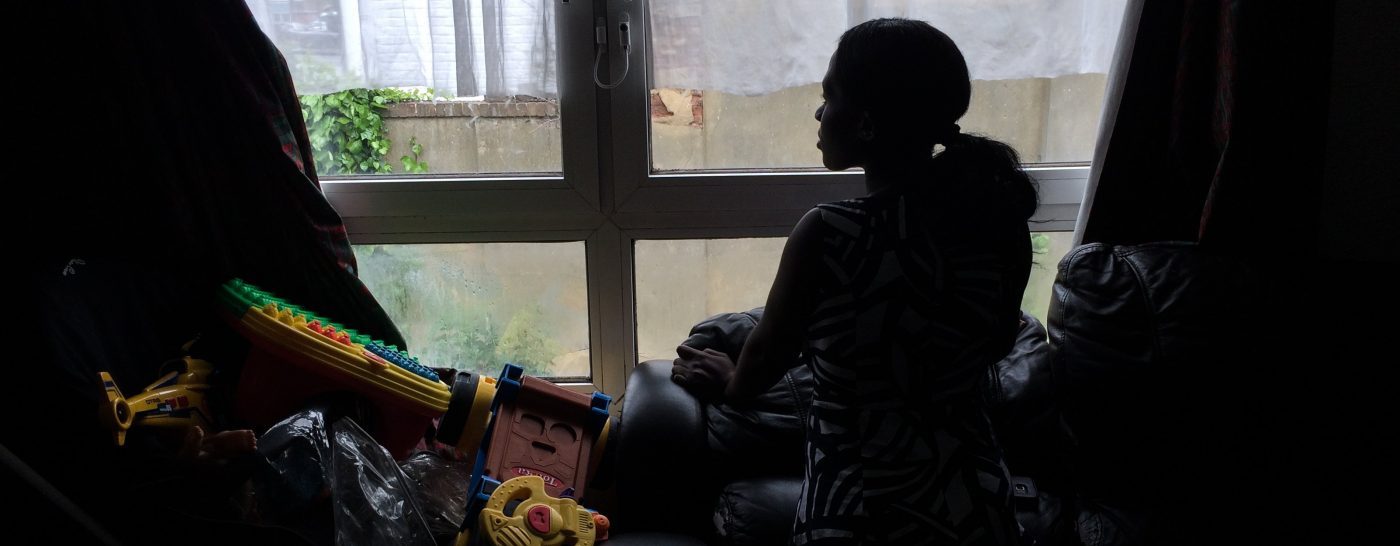#StopSharing: The women too afraid to see an NHS doctor
Published 24th April 2017
By Shyamantha Asokan
Patricia* sits in the flat where she works as a babysitter, surrounded by messy heaps of children’s toys. She’s almost six months pregnant – but she hasn’t had any antenatal care at all. In recent weeks, she’s missed several scans and midwife appointments.
“I feel trapped,” says Patricia, a young Ugandan woman who is bright and articulate. “I’m in a situation where I need to go to the hospital but I can’t because I feel my information might not be confidential.”
Patricia has no idea if her baby is healthy – she thinks her bump might be too small for someone near the end of their second trimester and she isn’t sure what vitamins or supplements to take. But she’s still too afraid to get the healthcare that she needs and that she’s legally entitled to.
Doctors of the World’s UK clinics regularly see undocumented migrants like Patricia who are too scared to see a doctor, due to the government’s growing access to NHS patients’ personal details. The government this year made a secret deal to get easier access to NHS data, in order to use patients’ home addresses and other non-clinical details to track down undocumented migrants.
We want this to stop. Our #StopSharing campaign is asking people across the UK, including medical professionals, to tell the government to end this unethical data-sharing.
“At this time of carrying a child, the last thing you want to worry about is being separated from that child,” says Patricia, who’s lived in the UK for several years and whose partner is a British citizen. She fears that her hospital will share her address with the Home Office, the UK government department in charge of immigration, who will then find and deport her.

One morning last autumn, Maria* discovered a lump on her breast. She was terrified due to a history of cancer in her family – her father had died of cancer and her sister had had breast cancer. Doctors of World helped her to register with a GP and made sure she was referred for an emergency biopsy.
But Maria didn’t go for her biopsy. As the day approached, she became terrified that the hospital would share her details with the Home Office. Maria is an undocumented migrant from the Philippines, who has lived in the UK for several years and works as a cleaner. She sends the few extra scraps of money she earns, as well as the unwanted clothes that her employer sometimes gives her, to her children back home.
“I felt like I was carrying the weight of the whole world during those days,” she says. “I was so worried that if I went to the hospital, then the immigration authorities would know about it – maybe they would get me and deport me. But if I didn’t go to hospital, then what about the lump?”
According to UK government figures, the Home Office submitted 8,127 data requests to the Department of Health in the first 11 months of 2016 alone. These requests led to 5,854 people being traced by immigration teams. This tactic is also on the rise – the number of Home Office requests to NHS Digital, the NHS body that stores patient information, has tripled since 2014.
Maria eventually mustered the courage to make a second appointment. Her lump was found to be benign, but doctors wanted to remove it due to her family history. She had her surgery this year – but to this day she remains terrified of getting healthcare.
“When I walk past an optician, I want to enquire,” she says, as she has recently noticed that her vision is deteriorating. “But then I think ‘No, Maria, you shouldn’t go.’ ”
*Names have been changed
Please support our #StopSharing campaign by signing our petition, supporting our social media push, and downloading our Safe Surgeries toolkit for GP practices.
